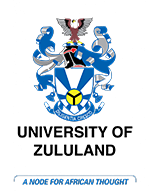The Department of Biochemistry and Microbiology at the University of Zululand (UNIZULU) and the South African Medical Research Council (SAMRC) have partnered to provide a wastewater-based early warning system for COVID-19 in northern KwaZulu-Natal.
Shortly after the start of the COVID-19 pandemic, the SAMRC initiated an early warning system (EWS) based on SARS-CoV-2 levels in sewage systems. Each week , wastewater samples are collected from wastewater treatment works (WWTWs), and the viral fragments isolated and quantified. Since viral fragments can usually be isolated from wastewater 2 – 4 weeks before detection in communities, wastewater surveillance provides an important platform for a COVID-19 Early Warning System.
The SAMRC currently monitors SARS-CoV-2 levels in 70 WWTWs across four of South Africa’s provinces. Recently, Professor Albert Basson, Head of the Department of Biochemistry and Microbiology at UNIZULU, hosted the SAMRC to discuss extension of the wastewater surveillance programme to sites in northern KwaZulu-Natal. The Dean of the Faculty of Science Prof Khoboso Lehloenya, Agriculture and Engineering, as well as with Prof Kunene, the Deputy Vice Chancellor for Research had meetings, site visits were also conducted at various WWTWs within the City of uMhlatuze to determine their suitability for the surveillance programme, including within Richards Bay, KwaDlangezwa, Empangeni, Nseleni, Esikhaweni and Ngwelezane.
This partnership between UNIZULU and SAMRC is of strategic importance as it will provide a useful COVID-19 EWS to municipalities north of the eThekwini municipal hub. Wastewater samples will be collected every Monday morning from selected WWTWs in the City of uMhlathuze, with potential for subsequent expansion to surrounding municipalities. The wastewater samples will be analysed at UNIZULU laboratory following training of young scientists in laboratory extraction and analytical methods at the SAMRC. An initial pilot study will be undertaken at the Vulindlela Wastewater Treatment Plant in KwaDlangezwa to assess logistical arrangements and to ensure compliance with quality control measures.
The results generated through the partnership will feed into a publicly accessible SARS-CoV-2 Wastewater Surveillance Dashboard (https://www.samrc.ac.za/wbe/). The interactive dashboard provides information on current concentrations and historical trends in SARS-CoV-2 levels in the catchment areas being monitored. Weekly summaries will also be distributed to public health decision makers in the City of uMhlatuze.
The scientists involved in the SAMRC-UNIZULU partnership look forward to the programme generating useful information to complement other sources of evidence to guide decisions and actions to manage COVID-19 in the area, including the anticipation and prevention of COVID-19 hotspots.
SAMRC donate all apparatus, reagents (for the next three years) worth three million rand to the Department of Biochemistry and Microbiology for this joint project. The Department of Biochemistry and Microbiology is currently renovating one of the laboratories into a Biosafety Laboratory Level 2 to work with highly infectious viruses and bacteria. According to Prof Basson the group will also distinguish between the different variants of the Corona virus. This laboratory and equipment can also be use in the future for HIV, TB, measles and many more other diseases. The staff involved in this research that is also the biggest community project from the Department of Biochemistry and Microbiology include also Prof E Madoroba, Prof M Mthembu, Dr N Hlengwa and Mr M Ngwenya.
-Prof Basson & Precious Shamase

